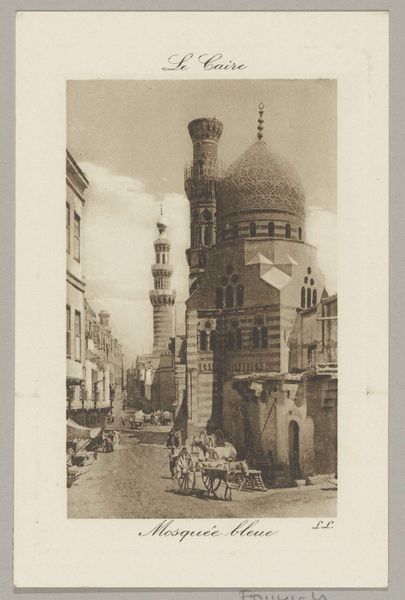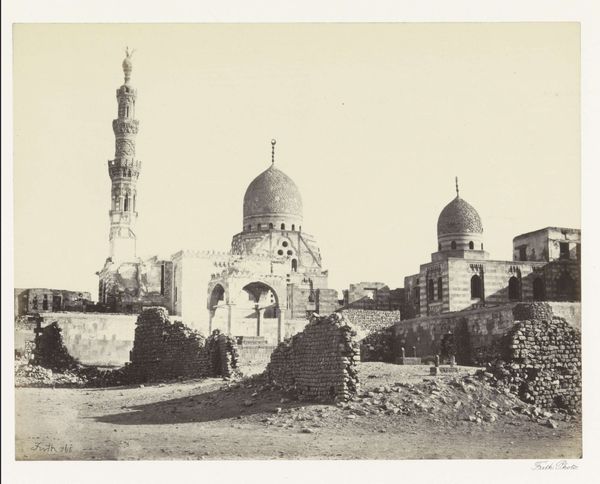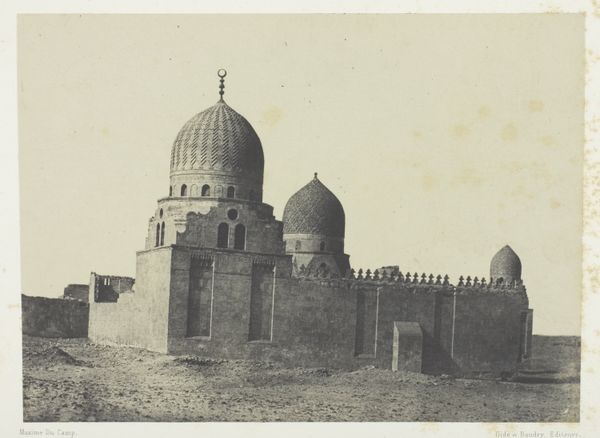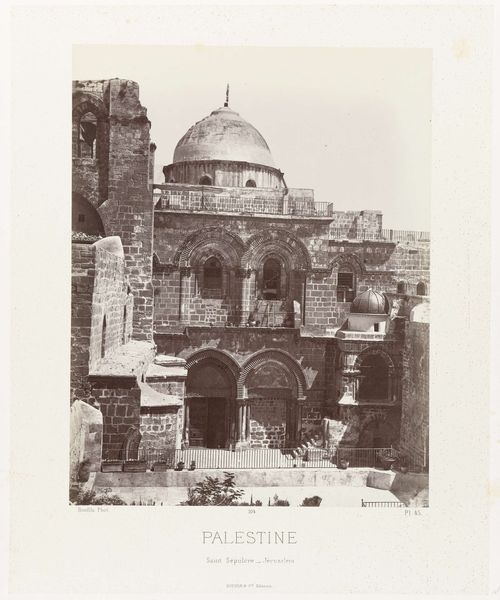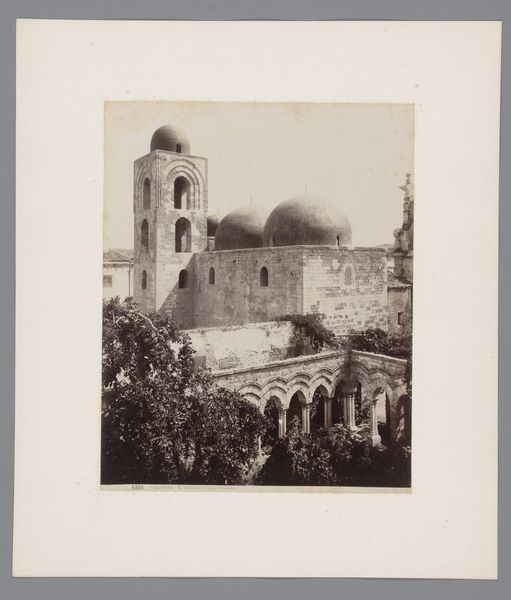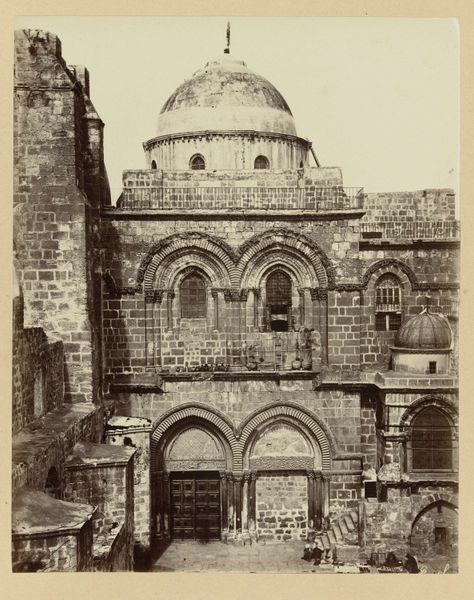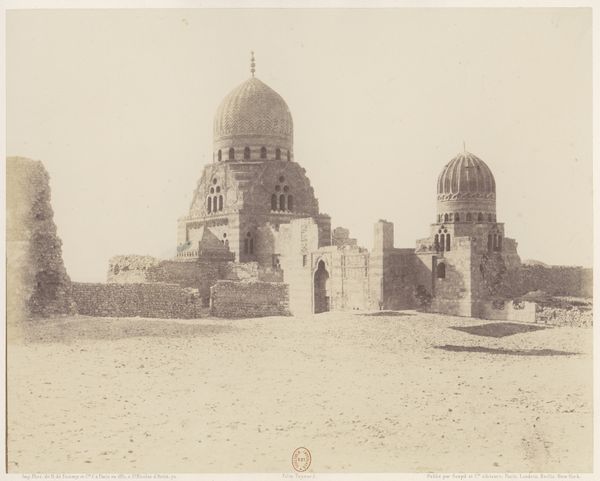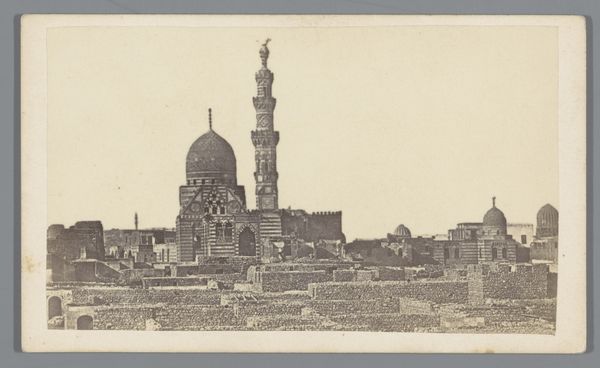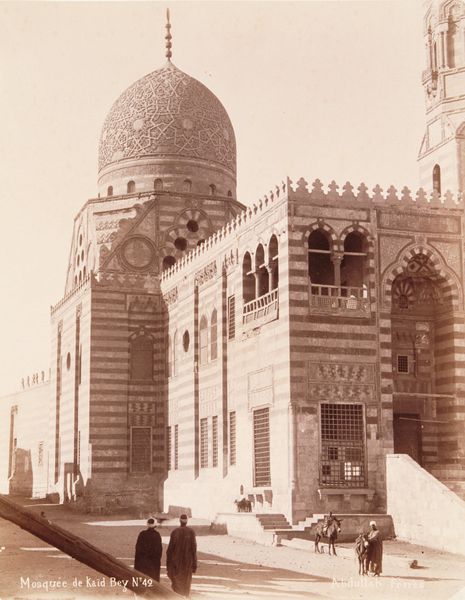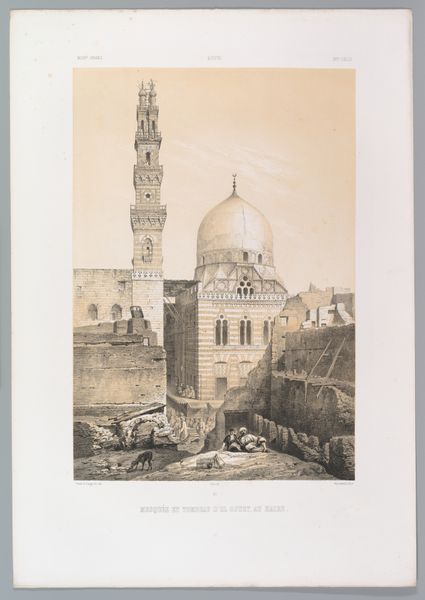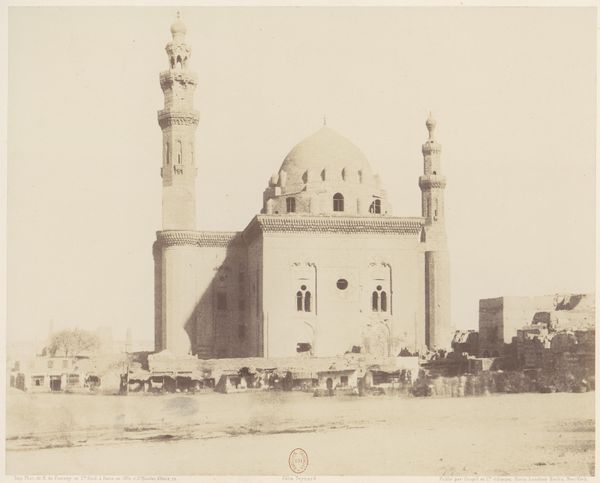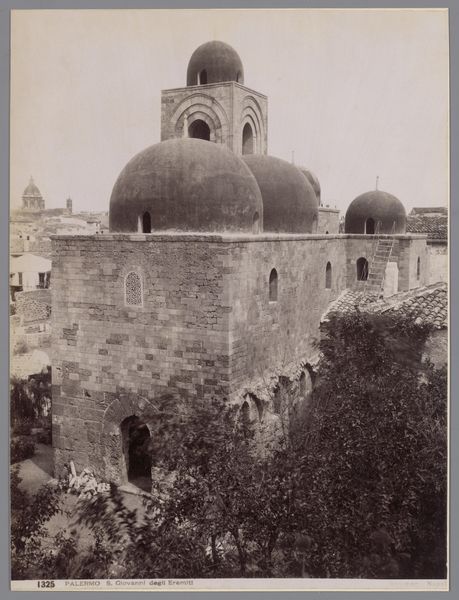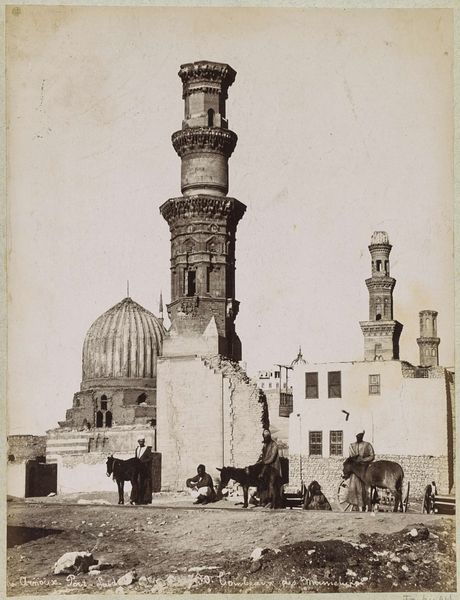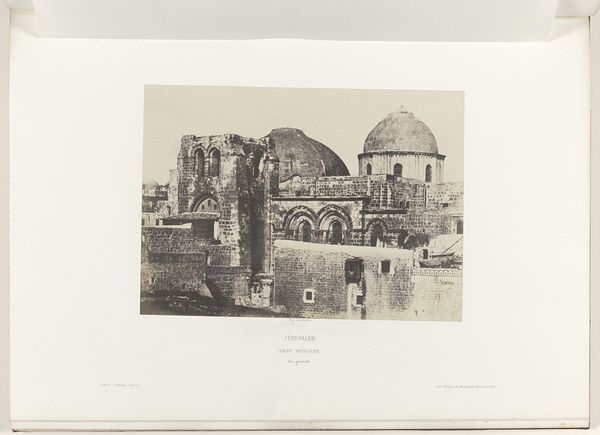
photography, albumen-print, architecture
#
photo of handprinted image
#
landscape
#
photography
#
old-timey
#
orientalism
#
19th century
#
islamic-art
#
albumen-print
#
architecture
Dimensions: height 235 mm, width 159 mm, height 435 mm, width 314 mm
Copyright: Rijks Museum: Open Domain
This photograph of the Mosque of Qani-Bay in Cairo was taken by Francis Frith, most likely in the 1850s. Frith was one of the first British photographers to extensively document the Middle East. His images, like this one, reveal a fascination with what was then seen as an exotic, far-off land. But they also served a practical purpose. As the British Empire expanded its reach, such photographs provided visual information and shaped public perceptions of these regions. Consider how Frith frames the mosque, emphasizing its architectural grandeur while also capturing the surrounding urban environment. The play of light and shadow, the intricate details of the mosque's design, and the presence of figures within the frame all contribute to the image's narrative. We can read this as both a celebration of Islamic architecture, and as a record of the cultural landscape during a time of increasing Western influence. To understand this image fully, we can research Frith's life, the history of photography in the Middle East, and the social and political dynamics of the time. The meaning of art is always contingent on its social and institutional context.
Comments
No comments
Be the first to comment and join the conversation on the ultimate creative platform.
